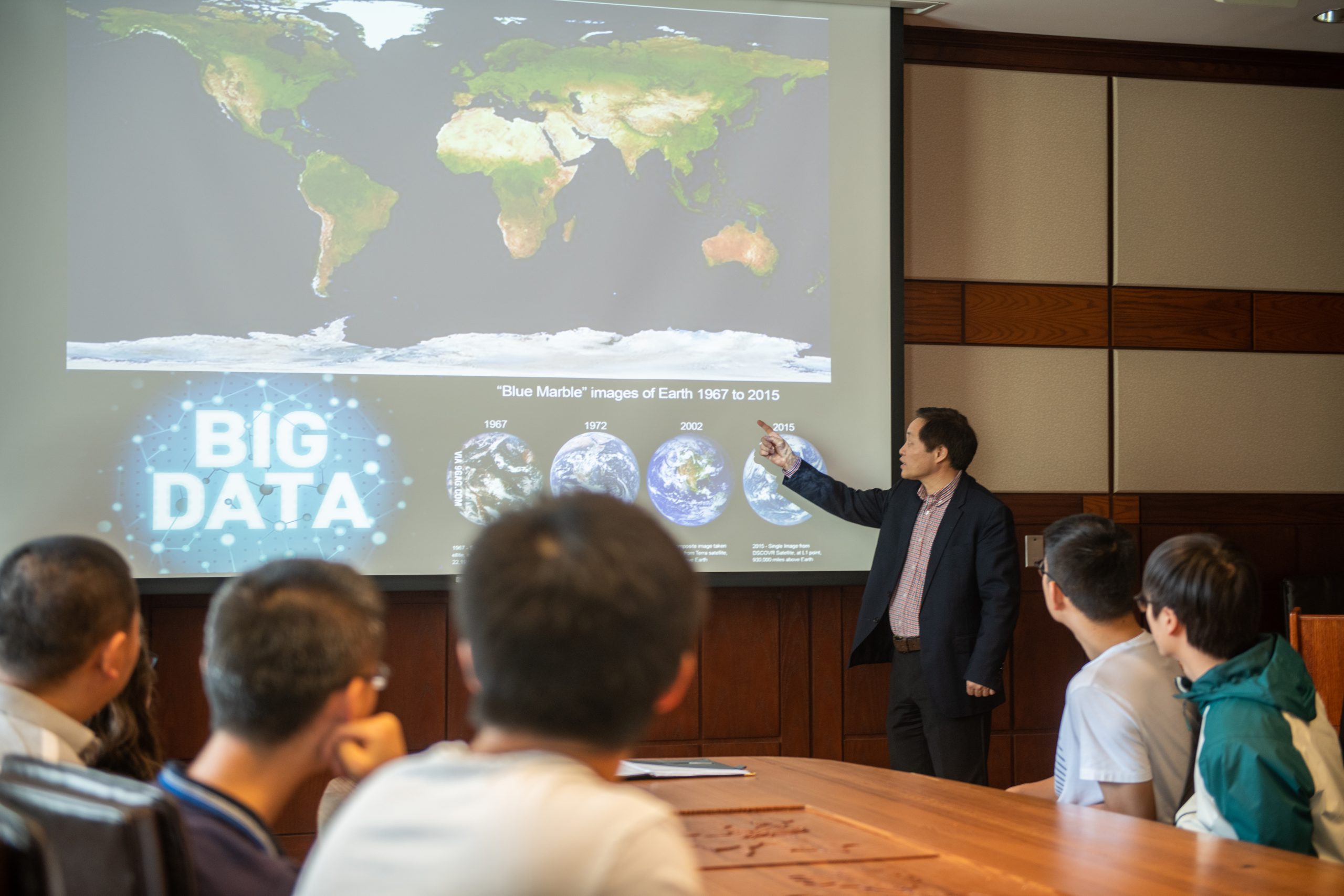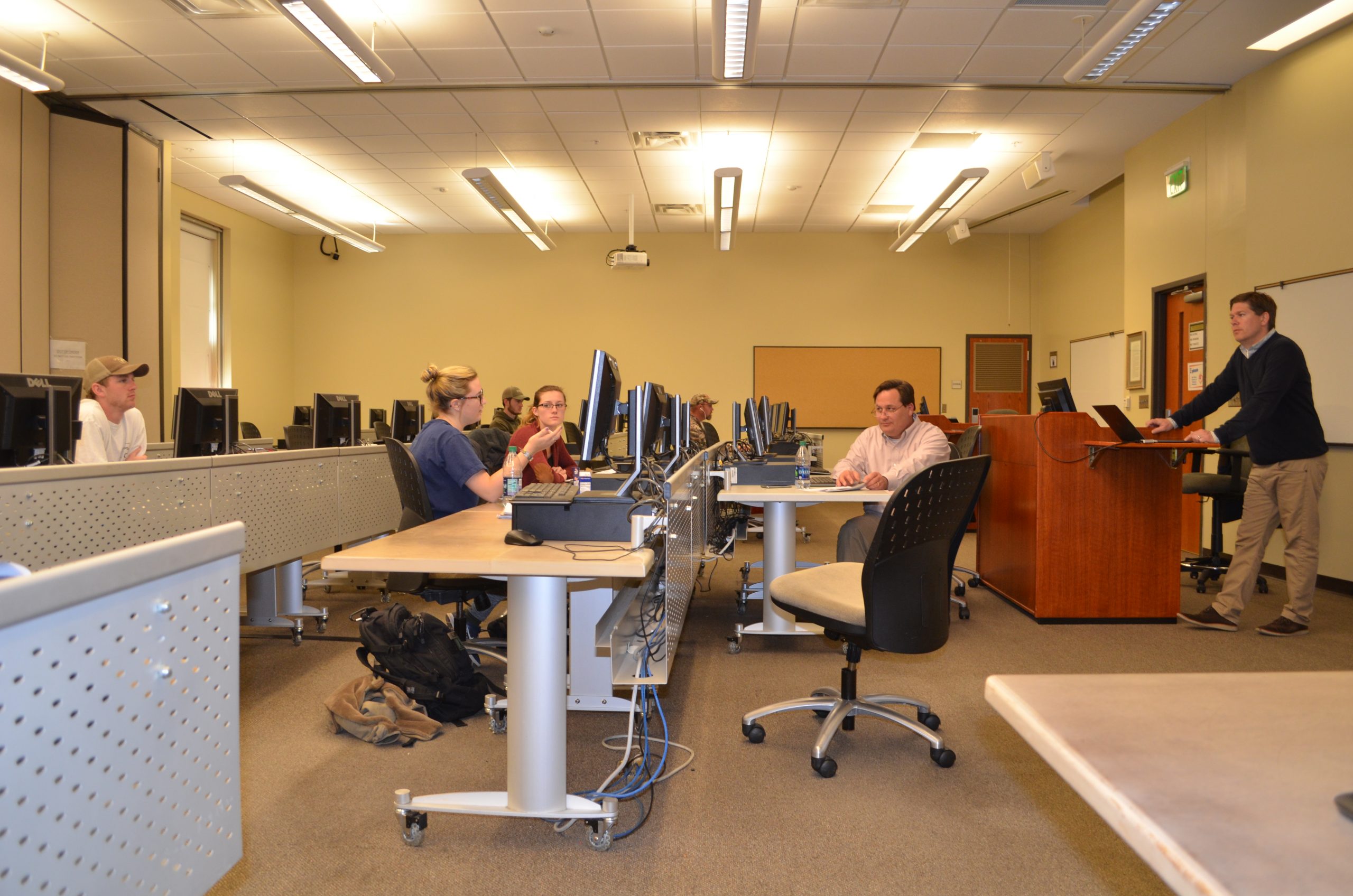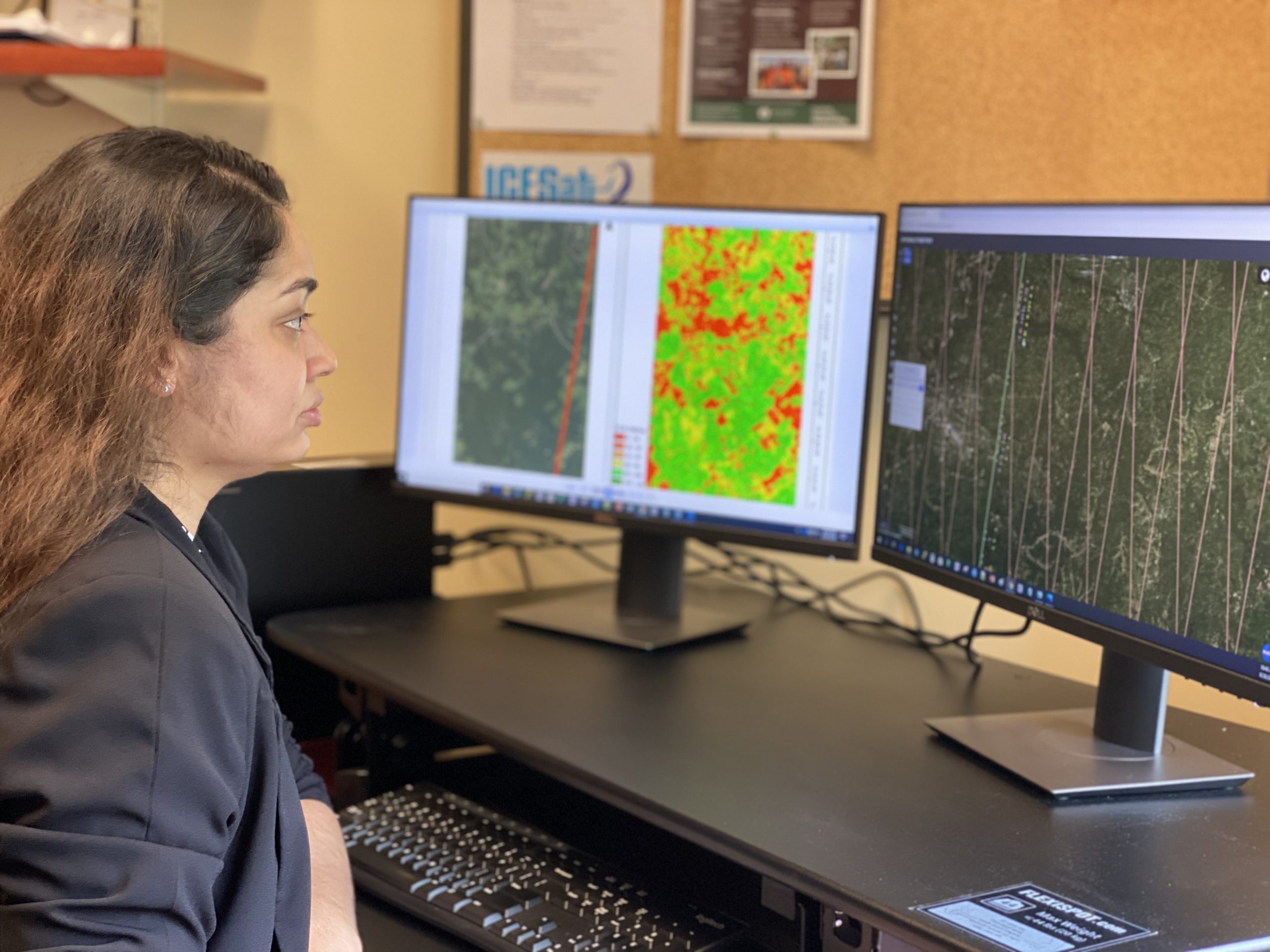Geospatial & Environmental Informatics
One of few programs offered in the Southeast, the Geospatial and Environmental Informatics program brings together information technology, spatial science, data analysis, natural resources, and ecological modeling to prepare students for in-demand technological careers where “Big data” drives decisions.

Established in 1856 as a land-grant institution, Auburn University offers an excellent value and quality of life for its students. Situated within the idyllic community of Auburn, the university consistently ranks as a “Top 50 Public Universities” in the country by U.S. News and World Report and has been voted the “Best College in the State” by Forbes Magazine. Boasting annual enrollment at nearly 30,000, Auburn has also been voted one of the “Best Values in Public Colleges” by Kiplinger with 98% of Auburn alumni polled highly rating their decision to attend Auburn, there’s a reason why our alumni proudly call themselves members of the Auburn Family long after their time in the classroom is over.

Geospatial technologies such as geographic information systems (GIS), the global positioning system (GPS), satellite-based remote sensing, and computer learning and simulations are tools commonly used today by all sectors of the economy for planning and decision making. These technologies have penetrated every aspect of our lives, from digital maps in vehicles to business forecasting and planning, to the management and maintenance of city infrastructure, regional forests, and agricultural lands. Owing to the increased reliance on geospatial technologies within industry and government, career opportunities in GIS-based fields are growing exponentially each year.
The Geospatial and Environmental Informatics (GSEI) major brings together information technology, spatial science, data analysis, natural resources, and ecological modeling that enable us to explore and apply these new technologies and science to the sustainable management of the natural world and the efficient use of resources.

Students can transfer up to 60 semester hours of credit toward their degree program at Auburn University. The CFWE also offers cooperative transfer programs with several community colleges. Students may also enroll in Auburn’s Path to the Plains program, where they may take courses concurrently at Auburn and participating institutions until their junior year, when they fully enroll at Auburn.
If you have any questions about Auburn’s grade point requirements for transfer students, transferring or would like an academic advisor to evaluate your transcripts, please call our Student Services office at 334-844-1001 or e-mail workingwithnature@auburn.edu.

The GSEI major is collaboratively taught by world-renowned faculty from the College of Forestry, Wildlife and Environment, and the colleges of Agriculture, Sciences and Mathematics, Engineering, and Business. Aligned with the interdisciplinary Science, Technology, Engineering, and Math (STEM) program of the National Science Foundation, the program is designed to enhance knowledge across multiple fields including ecology, agriculture, geosciences, climate change, and civil engineering. This STEM approach prepares students to be successful and highly competitive in a diverse and rapidly growing job market.
Follow the link below to find information regarding the courses that are offered within this program.

Professionals are in high demand for collecting, collating, modeling, analyzing, visualizing, and communicating geospatial information. Graduates can anticipate a wide variety of career opportunities within public agencies and government, private corporations, and consulting firms as:
- Data and information specialists
- Ecosystem modelers
- Business analysts
- Environmental consultants
- Land use and resource planners
Learn more about the diverse career opportunities available with a degree in geospatial and environmental informatics!

Meet Alumnus, Joseph Davis ’22
Joseph Davis, of Athens, Alabama, graduated in 2022 with a Bachelor of Science in Geospatial and Environmental Informatics. He works as a field engineer at the Nashville office of Southeast Connections. In this role, Joseph is responsible for project oversight and support, diligently monitoring and reporting on various aspects such as production, quality, schedule, and financial performance. Additionally, Joseph proactively addresses customer needs, ensuring their requirements are met both on-site and within the office environment.
How did CFWE prepare you for your career?
CFWE prepared me by establishing a solid foundation of geospatial mapping software, enabling me to swiftly adapt to the tools I now use on a daily basis. Additionally, the program taught me the importance of meeting deadlines diligently while ensuring the completeness and accuracy of my work.









